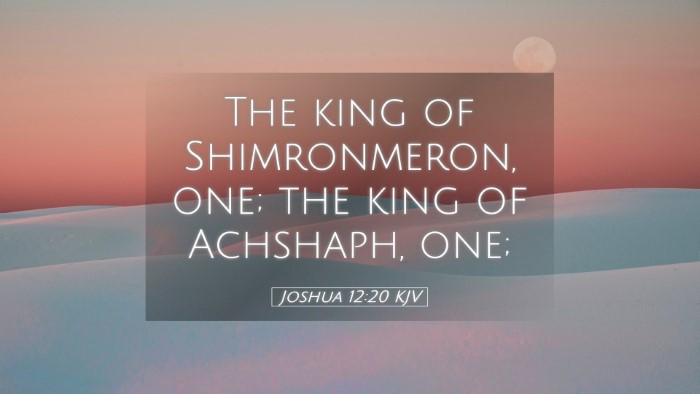Old Testament
Genesis Exodus Leviticus Numbers Deuteronomy Joshua Judges Ruth 1 Samuel 2 Samuel 1 Kings 2 Kings 1 Chronicles 2 Chronicles Ezra Nehemiah Esther Job Psalms Proverbs Ecclesiastes Song of Solomon Isaiah Jeremiah Lamentations Ezekiel Daniel Hosea Joel Amos Obadiah Jonah Micah Nahum Habakkuk Zephaniah Haggai Zechariah MalachiVerse
Joshua 12:1 Joshua 12:2 Joshua 12:3 Joshua 12:4 Joshua 12:5 Joshua 12:6 Joshua 12:7 Joshua 12:8 Joshua 12:9 Joshua 12:10 Joshua 12:11 Joshua 12:12 Joshua 12:13 Joshua 12:14 Joshua 12:15 Joshua 12:16 Joshua 12:17 Joshua 12:18 Joshua 12:19 Joshua 12:20 Joshua 12:21 Joshua 12:22 Joshua 12:23 Joshua 12:24

